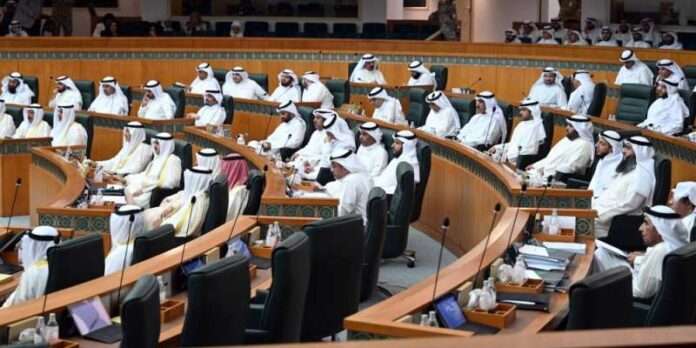During a recent National Assembly session devoted to budget discussions, several Members of Parliament (MPs) voiced their concerns and criticisms regarding the allocation and management of funds. The session highlighted various issues ranging from incomplete projects and mismanagement to concerns about subsidies and unemployment, reported Al-Rai Daily.
One notable concern raised by Abdul Wahab Al-Essa was the disproportionate allocation of current spending without sufficient impact on the livelihood of citizens, with a 400 million decrease in capital spending. He also pointed out unfair practices related to the sale of permits, urging the government to address these constitutional violations. Al-Essa further emphasized that about 6 billion dinars spent on subsidies benefit both the rich and the poor without rationalization efforts from the government. A warning must be issued to safeguard the Generations Fund, as any withdrawal would result in political accountability.
MP Marzouq Al Habini highlighted that companies fail to perform adequately in government projects. He also criticized the unequal treatment of local producers, farmers, and fishermen compared to importers.
Another MP, Mutib Al-Rathan, pointed out the dissatisfaction among citizens with the current state of services, attributing the issue to corruption and ineffective governance. He suggested reducing the state’s salary budget by involving the private sector and implementing laws to ensure salary balance in companies.
Fahad Al-Masoud expressed concern about the persistent budget deficits over the past two decades, emphasizing the need for sustainable economic solutions rather than relying on withdrawals from the sovereign fund.
MP Osama Al Shaheen criticized the inefficiency and ineffectiveness in security measures and border protection, particularly mentioning the incomplete Mubarak Al-Kabeer Port project. He questioned the rationale behind investing in the port when neighboring countries were already making substantial investments in their own ports.
MP Ahmad Lari stressed the importance of linking the government’s work program with the budget to ensure development and address financial risks. He also advocated for the establishment of a local investment fund to maximize state revenues and revitalize the economy.
Saud Al-Asfour expressed concern over the imbalance between current expenditures, which amount to 24 billion dinars, and capital expenditures of only 1.8 billion dinars, which goes against the government’s direction and past work programs. Al-Asfour also raised doubts about the benefits of a 300 million dinar framework agreement with Google, stating that it does not provide job opportunities for young people but rather focuses on Google providing services to Kuwait.
Other MPs, such as, Faris Al-Otaibi, Hany Shams, Jinan Bou Shehri, Mohammed Al-Huwaila, and Dawood Marafie, also raised various concerns related to budget planning, implementation, and its alignment with developmental goals.
Concerns were also raised about its heavy reliance on oil, accounting for 94%. The government’s long-term ability to meet citizens’ obligations using this outdated and unsuccessful policy was questioned. With thousands of unemployed individuals, the focus shifted from simply securing funds to ensuring sound and effective government decision-making.

















